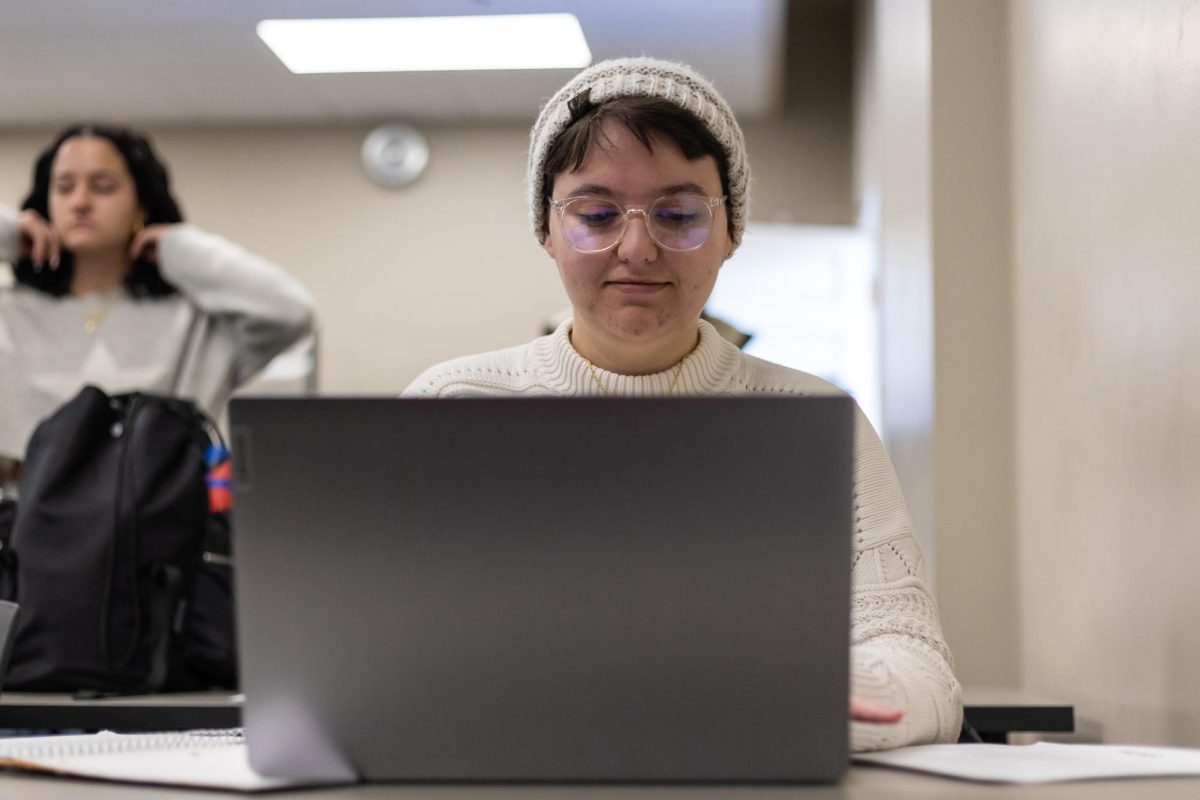As students return to classes and schedules, they are navigating varying rules from new professors regarding technology.
Students and professors alike have been in classrooms and lecture halls and seen the majority of students with a laptop open on the desk in front of them.
“They’re not, for the most part, taking notes,” said Dianne Bragg, an associate professor and the associate chair of the Journalism and Creative Media Department. “They are shopping or working on an assignment for another class. They are paying no attention to what’s going on in front of them.”
For students who believe this misuse to be a professor’s only motivation, rules barring technology can feel frustrating and condescending, but Bragg said preventing misuse wasn’t her only reason for banning technology in the classroom.
About 10 years ago, Bragg read a study that found students who wrote their notes by hand better comprehended the material in comparison to those who typed their notes. After reading this study, she compared the grades of students in her class who had typed notes to the grades of those who wrote their notes.
“I looked at their overall average as opposed to the rest of the class and it was a letter grade lower,” Bragg said, noting that it was anecdotal evidence.
In an article published by Scientific American, Charlotte Hu discusses the continuing research into the possible benefits of handwriting notes.
“When taking notes by hand, it’s often impossible to write everything down; students have to actively pay attention to the incoming information and process it — prioritize it, consolidate it and try to relate it to things they’ve learned before,” Hu said.
Other professors implement rules limiting technology in their classes for different reasons, such as promoting focus and increasing participation.
Ariana McIntyre, a senior majoring in neuroscience, reflected on a discussion-based class she recently took in which the professor did not allow technology.
“No technology allowed me to interact and focus more of my attention on my peers and their ideas and thoughts. I was not distracted by anything on my laptop or phone that would have taken my attention off the topics we were discussing,” McIntyre said.
However, McIntyre said she still felt limited by an inability to access technology in class.
“When it came to note taking, I fell very far behind. My typing ability greatly succeeds that of my handwriting,” McIntyre said.
In another article from Scientific American, author Cindi May comments on this dilemma.
May said that while it may seem that drafting more complete notes with technology is better than less through notes produced by hand, the advantages of handwriting still outweigh the apparent downsides.
She also said that despite writing being a less efficient process, studies have demonstrated that students who wrote their notes had a greater ability to understand and apply the material than those who typed their notes.
Regardless of what benefits research might show, Bragg noted that students often initially have negative reactions to having to handwrite notes.
“Their hands are killing them because they never write anymore. But then they slowly get the hang of it,” Bragg said. “I’m hoping it’s a life skill that they take away from that class that helps them in other areas.”









